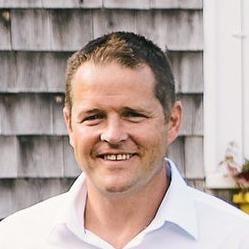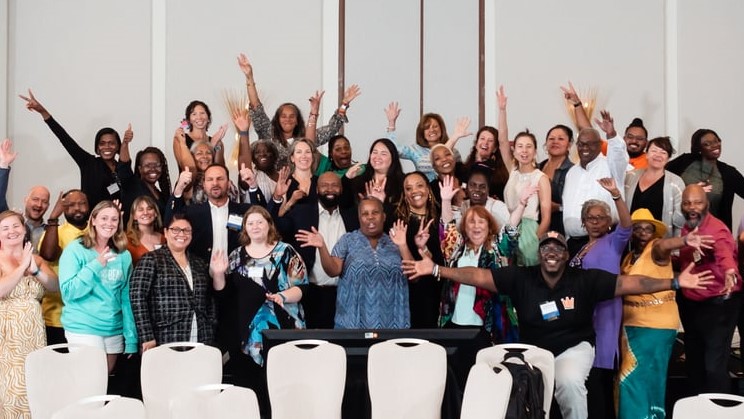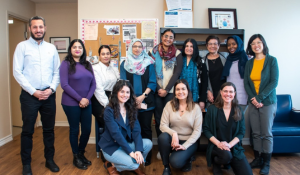
In this article, Scott MacAfee discusses harnessing the Power of ABCD: Building communities, strengthening democracy, and empowering change. Discover how Asset Based Community Development transforms lives. To learn more, join Tamarack's ABCD event: When Community and Municipalities Meet in the Middle.
Three Benefits of ABCD for Communities (and Government)
Over 23 years as a public servant, I have occupied the shifting space between people and policy. I’ve witnessed well-intentioned policy awkwardly applied in ways that diminished the equity, autonomy, or contribution of those it was designed to support. I always endeavoured to bring people and policy together (meeting in the middle) so that policy could build wellbeing for all. This is when I came across Asset Based Community Development (ABCD). ABCD is an ancient antidote to this destructive and dangerous division. The formal definition of ABCD goes something like this: “communities can drive the development process themselves by identifying and mobilizing existing, but often unrecognized assets”.
What I have seen and learned is that there are three benefits of ABCD for Communities and Governments:
1. ABCD Builds Up Belonging
“The purpose of life is to discover your gift and the meaning of life is in giving it away.”
The ABCD process invites everyone to reflect, identify and share their own personal gifts and strengths. It then invites all to collectively view these gifts as the combined assets of the community and to mobilize them towards a common goal. ABCD also demands that every contributed asset is considered useful. When every asset is useful, every citizen has value, with a gift to share and something to contribute.
This is a powerful and irreversible way to look at the world, especially if you’ve been excluded or pushed to the margins of your community.
I feel valued when I am listened to, asked to participate, and invited to contribute. Unsurprisingly, so do others. This approach to community builds a sense of belonging and uses trust as a default, by creating space for others to contribute in their own way.
.png?width=959&height=520&name=ABCD%20(1).png)
2. ABCD Develops Our Democracy
The Iron Rule: “Never do for others what they can do for themselves.
I like to think of ABCD as a very personal form of democracy (people power): we, as individuals, neighbours, and citizens have what it takes to fix local problems. By giving our “gifts” to our communities we make where we live a better place for everyone, we find our own meaning and purpose and build a sense of belonging that ties us together.
I believe government was set up to do the very same thing: to make everyone’s life better and easier. By pooling our resources (in the form of taxes), we can do things collectively, like plowing the streets, setting up an electrical grid, or building a school. We can do things that would be almost impossible for us to do individually.
When governments can authentically enable this exchange, communities prosper. If you want to know what to do, ask the people who will be the most impacted by the thing that you might do (or might not do). People are empowered by their contribution; people are connected through their shared passions, and we are all valued for who we are and what we do. Creating this space builds up communities from the inside out, through the lenses of hope, joy and belonging we see and seek the best in each other, and subsequently ourselves.
In Canada, our rights and freedoms come with responsibilities--to ourselves, our family, our community, and our country. We must freely participate, actively engage, and continuously contribute ourselves (our gifts, time, skills, knowledge, passion, love) to each other, for one another. Our goal should never have been self-reliance; but rather interconnectedness, where mutual support benefits every one of us.
3. ABCD Helps Empower the Process
“If they build it, they will stay…”
ABCD is a process, not a project or a program. Although projects and programs are often born of the ABCD process, they are not the intended outcome. Using the ABCD process, governments invest in the people of a community. Those people, through the sharing of their strengths and gifts, mobilize others with vested interest in that place to share their strengths and gifts, and so on.
I recognize that this is a different way of doing things. Normally, government provides grants to an NGO for a projects or program that fits the funding criteria, with an expected outcome, then the not-for-profit spends the money in the defined way, and the project or program is hopefully successful. The funding eventually runs out and the NGO comes back, looking for more funding to run another, slightly improved project or program that will benefit the same or different community. Unfortunately, when the funding ends, so does the community benefit. On the other hand, with ABCD citizens, their families and their neighbours are living the benefit of their own collective efforts. In the current climate of divisiveness, actual or projected, it is seemingly difficult for communities to come together for their own prosperity and interdependence.
“Faith will be rewarded” – B. Springsteen
What role should/could government have in rebuilding hope, faith and trust in our communities and themselves? I challenge governments to shift from the mindset of “doing for” to one of “doing with” by supporting people to build and uncover capacity in communities that will eventually enable quality of life activities. Empowering citizens to uncover their own collective power, then putting them at the center of the political and policy process will strengthen our democracy and build trust in our institutions. After all, if we can’t trust ourselves, who can we trust?






